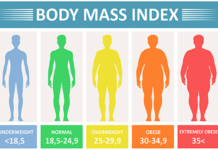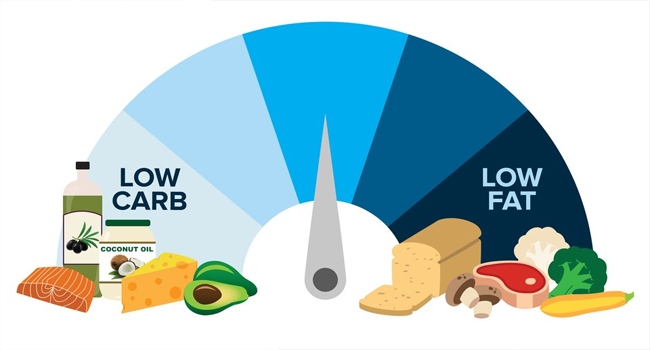Introduction:
The talk between low-carb and occasional-fat diets has raged in the perennial quest for weight reduction and highest-quality fitness. Each camp boasts its set of fervent supporters armed with research and anecdotes to validate their selected method. But which weight-reduction plan reigns ideal? Do low-carb diets offer the panacea for weight reduction and metabolic health, or are low-fat diets the extra sustainable choice? This article delves into the technology behind each nutritional technique to determine which works better.
Understanding Low-Carb Diets:
- Low-carb diets, typified by popular variations like the ketogenic food regimen and Atkins diet, restrict carbohydrate intake while emphasizing fats and proteins. The premise behind those diets lies in manipulating insulin stages and metabolic pathways. By proscribing carbohydrate consumption, the body is compelled to depend upon fats for energy, a nation called ketosis. Proponents of low-carb diets argue that this metabolic shift ends in speedy weight reduction, improved satiety, and higher blood sugar management. Indeed, research has proven that low-carb diets can result in substantial initial weight reduction, generally because of decreased water retention and decreased appetite.
- Moreover, low-carb diets regularly result in favorable changes in cardiovascular risk elements, expanded HDL (properly) cholesterol levels, and reduced triglycerides. Some proponents also claim cognitive benefits associated with ketosis, even though, in addition, studies are wanted to confirm these claims. However, critics oppose the lengthy-term sustainability and health dangers of low-carb diets. Severely limiting carbohydrate intake can result in nutrient deficiencies, especially in fiber, nutrients, and minerals in carbohydrate-wealthy meals like fruits, veggies, and complete grains. Furthermore, the excessive consumption of saturated fats in a few low-carb diets may additionally increase LDL (horrific) cholesterol levels and growth the hazard of coronary heart disorder in the long run.
Understanding Low-Fat Diets:
- Low-fat diets won a reputation within the overdue 20th century as a response to rising obesity rates and cardiovascular disorders. These diets usually limit fat intake to around 20-30% of general calories, even emphasizing complicated carbohydrates and lean proteins. Proponents of low-fat diets argue that lowering fat intake results in decreased calorie intake, making it less challenging to attain and maintain weight loss. Additionally, changing saturated fat with unsaturated fat can improve lipid profiles and reduce the hazard of heart disease.
- Numerous studies have shown the efficacy of low-fat diets for weight loss and enhancing metabolic health markers. The Women’s Health Initiative Dietary Modification Trial, considered one of the most essential randomized managed trials on dietary interventions, validated that adopting a low-fat weight loss plan led to modest weight reduction and reductions in LDL cholesterol levels amongst postmenopausal girls. Moreover, low-fat diets are frequently rich in fruits, veggies, entire grains, and legumes, offering vital vitamins, fiber, and antioxidants that sell average health and sturdiness. By prioritizing plant-based total ingredients, low-fat diets can also provide shielding effects in opposition to continual illnesses like cancers and diabetes. However, critics argue that no longer all fats are created equal, and demonizing all fats might also oversimplify dietary recommendations. Specific fats discovered in nuts, seeds, avocados, and fatty fish are vital to fitness and must be covered in a balanced weight loss program. Moreover, some low-fat merchandise compensates for decreased fat by increasing sugar and delicate carbohydrate content, potentially negating health blessings.
Comparing the Evidence:
- When it involves weight reduction, research has yielded conflicting effects concerning the prevalence of low-carb versus low-fat diets. Some meta-analyses suggest that low-carb diets can also lead to extra initial weight loss, especially in the short period, even though there is no considerable distinction between the two procedures over the long term. A comprehensive examination posted in JAMA in 2018 compares the results of low-carb and occasional-fat diets on weight reduction and cardiovascular danger elements. The study concluded that each diet has been decisive for weight reduction without considerable variations between the two corporations. However, individuals with insulin resistance or higher baseline insulin degrees appeared to gain extra from the low-carb method.
- Similarly, a meta-evaluation published in the British Journal of Nutrition analyzed 23 randomized controlled trials and determined that low-carb diets were associated with more significant weight reduction and improvements in cardiovascular chance elements compared to low-fat diets at six months. However, these variations diminished on the 12-month mark. Furthermore, man or woman elements such as genetics, insulin sensitivity, and nutritional adherence play essential roles in determining the effectiveness of weight-reduction plans for weight reduction and metabolic fitness. A weight-reduction plan that a person can adhere to continuously and enjoyably is more likely to yield sustainable results, regardless of its macronutrient composition.
- Furthermore, ongoing studies shed light on the complexities of nutrition and metabolism and authoritarian simplistic notions of “right” and “horrific” macronutrients. Emerging proof shows that meal timing, first-rate meals, microbiome composition, and genetic predispositions play giant roles in how our bodies reply to exclusive dietary styles. For instance, the latest research has highlighted the importance of personalized nutrient procedures that consider a man’s or woman’s responses to particular foods and nutritional interventions. The area of nutrigenomics explores how genetic versions affect nutrient metabolism and dietary requirements, presenting insights into personalized dietary suggestions tailor-made to a person’s unique genetic profile.
- Moreover, the idea of metabolic flexibility underscores the significance of adaptability in gasoline utilization, wherein the frame can effectively switch between carbohydrates and fat depending on energy needs and nutrient availability. Strategies that sell metabolic flexibility, such as periodic fasting, time-limited eating, and incorporating each low-carb and low-fat day into one’s eating regimen, may provide a more nuanced technique for optimizing metabolic fitness and weight management. In the context of public fitness pointers, the emphasis should shift from selling one-size-suits-all dietary recommendations to empowering people to make knowledgeable choices primarily based on their personal fitness dreams, alternatives, and metabolic responses. Education on essential ideas of nutrients, including the significance of complete ingredients, component control, and conscious ingesting, can empower people to navigate dietary decisions in surroundings saturated with conflicting messages and fad diets.
Conclusion:
In the perennial debate among low-carb and coffee-fat diets, the evidence suggests that both procedures may be robust for weight reduction and enhancing metabolic health. While low-carb diets also offer positive advantages, along with fast initial weight reduction and improved blood sugar management for a few individuals, low-fat diets have tested comparable efficacy. They might provide additional benefits in terms of cardiovascular fitness and disorder prevention. Ultimately, the excellent food plan is sustainable, balanced, and tailored to a man’s or woman’s needs and choices. Rather than fixating on macronutrient ratios, emphasis must be placed on using complete, nutrient-dense foods, minimizing processed ingredients and delivered sugars, and maintaining a healthy lifestyle consisting of everyday physical activity and good enough sleep. In the give-up, the age-antique debate between low-carb and occasional-fat diets may be less about determining a winner and more about spotting individualized nutritional methods’ significance in reaching and preserving ideal health and well-being.






















